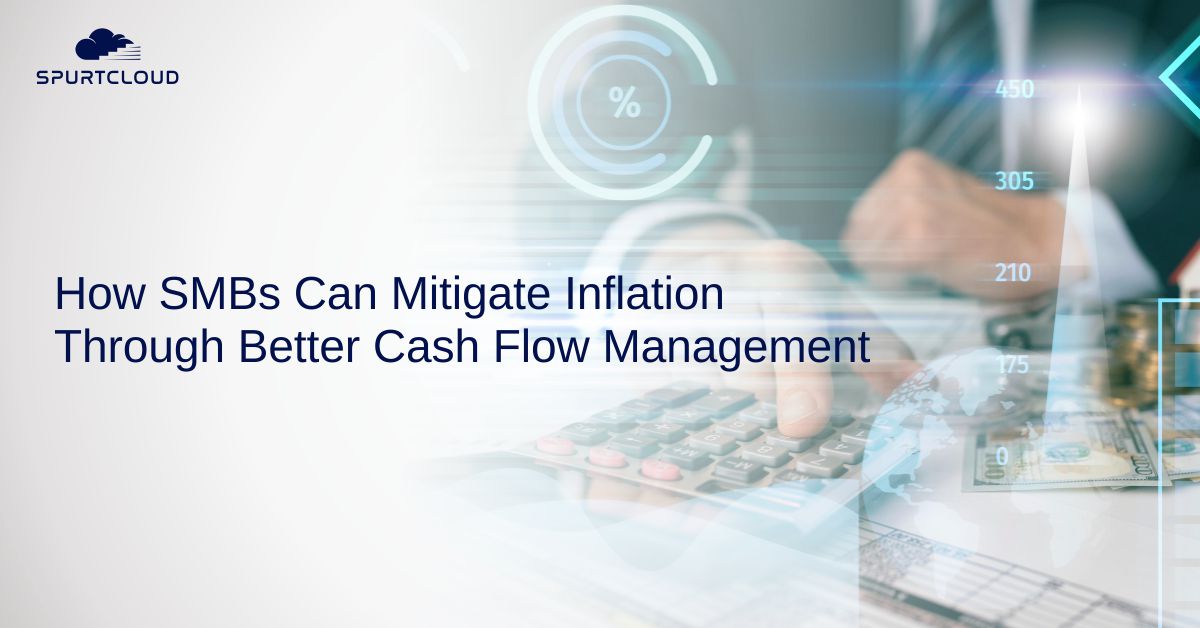According to MetLife and the US Chamber of Commerce research, 85% of polled small and medium-sized business owners are concerned about Inflation. One in every three business owners was concerned about Inflation. Because Inflation is an economic constant, small business owners must be prepared for it. Understanding how Inflation affects your business and establishing strategies for dealing with Inflation is vital.
What is Inflation?
Inflation refers to the overall increase in the prices of goods and services in an economy over time. In other words, Inflation means that the purchasing power of a currency is decreasing, and it takes more units of currency to buy the same amount of goods and services. Inflation is usually measured using the Consumer Price Index (CPI), which tracks the prices of a basket of goods and services typically consumed by households. Various factors, including an increase in demand for goods and services, a decrease in the supply of goods and services, and an increase in the cost of production, can cause Inflation. Inflation can have positive and negative effects on the economy, depending on its magnitude and duration. Mild Inflation can stimulate economic growth, while high and persistent Inflation can erode the value of savings, discourage investment, and create instability in the economy.
How does Inflation affect Small Businesses?
Businesses have had to deal with increased inflation expenses since the pandemic began. Covid-19 accelerated the inevitable—ongoing supply chain challenges made goods more difficult to get, raising prices.
Inflation can affect small businesses in several ways, including:
- Increased costs: Inflation can increase the cost of goods and services, including raw materials, labor, and utilities, which can raise the cost of production for small businesses. This can squeeze profit margins and make it difficult to maintain competitiveness in the market.
- Reduced purchasing power: Inflation can reduce the purchasing power of consumers, which can lead to a decline in demand for goods and services offered by small businesses. This can lead to lower sales and revenue for small businesses.
- Interest rates: Inflation can increase interest rates, making it more expensive for small businesses to borrow money. This can limit their ability to invest in new equipment, expand operations, and hire additional employees.
- Contracts and agreements: Inflation can also affect small businesses’ contracts and agreements with suppliers, customers, and lenders. For example, if a contract is not indexed to Inflation, the value of payments or receipts may be eroded over time.
- Cash flow: Inflation can disrupt cash flow for small businesses, particularly those that operate on a tight budget. This can make it challenging to pay bills, suppliers, and employees on time, damaging their reputation and creditworthiness.
Overall, Inflation can present significant challenges for small businesses, particularly those that lack the resources to absorb higher costs or invest in new growth opportunities. To mitigate the effects of Inflation, small businesses need to adopt effective cash flow management strategies, adjust pricing, negotiate terms with suppliers, and increase efficiency.
How can SMBs Mitigate Inflation through better cash flow management?
Small and medium-sized businesses (SMBs) can mitigate the effects of Inflation by adopting effective cash flow management strategies. Here are some ways SMBs can manage their cash flow to cope with Inflation:
- Adjust pricing: One way to mitigate the impact of Inflation is by adjusting the pricing of goods and services. SMBs can increase their prices to maintain their profit margins, but they must be careful not to price themselves out of the market. Offering discounts and promotions can also help attract customers while maintaining profitability.
- Manage inventory: SMBs can also manage their inventory effectively to avoid overstocking and wastage. Monitoring inventory levels and adjusting ordering schedules can reduce the risk of stock obsolescence and write-offs.
- Negotiate terms with suppliers: SMBs can negotiate with their suppliers for better payment terms, such as more extended payment periods, which can help manage cash flow. They can also explore alternative suppliers who offer more competitive prices.
- Increase efficiency: SMBs can streamline their operations and eliminate waste. This can help reduce costs and increase profits, offset the impact of Inflation.
- Monitor cash flow: SMBs must closely monitor their cash flow to identify potential problems and take corrective action quickly. They should regularly review their financial statements, such as cash flow statements and balance sheets, to stay on top of their finances.
- Stock up on supplies: What you should know about price hikes and inflation is that 90% of the time, the price never goes back down. That is how it will remain. However, you may take advantage of this. If you have excess cash, stock up, buy more from your supplier, and keep it in a safe place so you don’t feel too pressured the next time you need to pile up on inventory.
- Use technology: SMBs can automate their financial processes, such as invoicing and payment collection, which can help reduce administrative costs and improve cash flow management.
- Send Invoices quickly: Do not wait till month end to send out invoices Send them out as soon as the job is finished or the items are delivered. The earlier you send out invoices, the better your chances are of getting paid swiftly. Create one-time and recurring bills quickly and effortlessly using SpurtCloud, then send them out from any time or location.
In conclusion, SMBs can mitigate the effects of Inflation by adopting effective cash flow management strategies that focus on controlling costs, increasing efficiency, and monitoring cash flow closely. By doing so, SMBs can maintain their profitability and remain competitive in the market.
Are you facing the following issues?
Wasting time doing repeating tasks like sending manual reminder through email and sms?
Losing track of customer requests like handing disputes?
Increased DSO and reduced cash collection?
Get in touch with us to learn how SpurtCloud can help digitize your A/R Department.


